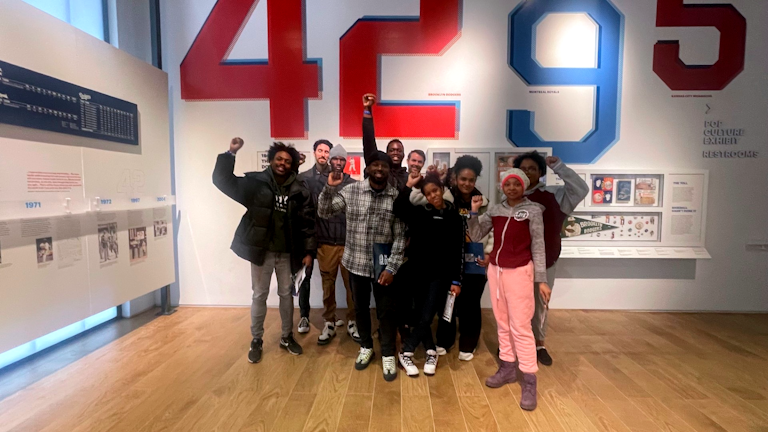
Celebrating Black History Month at The Door
February is Black History Month. In recent years, we at The Door have realized that we need to tell a more complete story about our communities – from our supporters to our staff to the people in the neighborhoods where we work. Every year, The Door observes the prominent holiday in various ways, including daily highlights curated by Door staff, Door member spotlights, and hosting programming celebrating Black leaders throughout history, including pop-up barbershops, a Black Excellence event, gallery walks, and more.
Every weekday in February, our teams receive a daily email focused on Black luminaries who are less often in the spotlight, curated by Timothy Shands, who teaches in our Career & Education department. It’s one important aspect of how The Door observes Black History Month – and sheds light on how young people engage with Black history through our programs every day.
"When I started teaching, I was a little resistant to the idea of Black History Month because it’s American history. We can call it Black history if we want, but the reality is that it is all American history.
I share about Black pioneers all year - it’s not something I only do in February. I bring it into my classroom. I love serving as a conduit, and it’s a responsibility I take seriously. I think I am filling an important gap by connecting the material we’re studying to my students’ real-life existence. When I am successful, our lessons work so much better.
And that’s a message I’d like to share with everyone who supports The Door – everyone has much to learn about Black history and American history. It’s incredibly relevant to our daily lives. Please be inspired to do that work." - Timothy Shands, Young Adult Literacy Program Instructor
We’re doing our work in an integrated way. Through virtual gallery walks to Door member highlights, we're honoring the Black voices who've profoundly impacted our internal and global communities.
Black history is United States history, and we celebrate the influence Black lives have on our culture, language, music, space exploration, sports, fine arts, engineering, architecture, culinary culture, religion, education, fashion, politics, medicine, and countless areas of innovation.